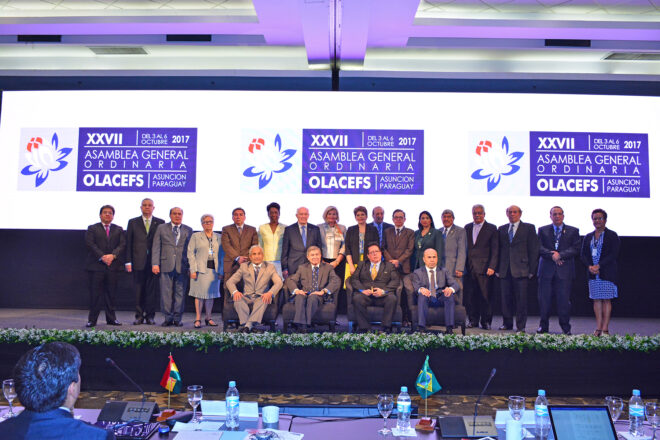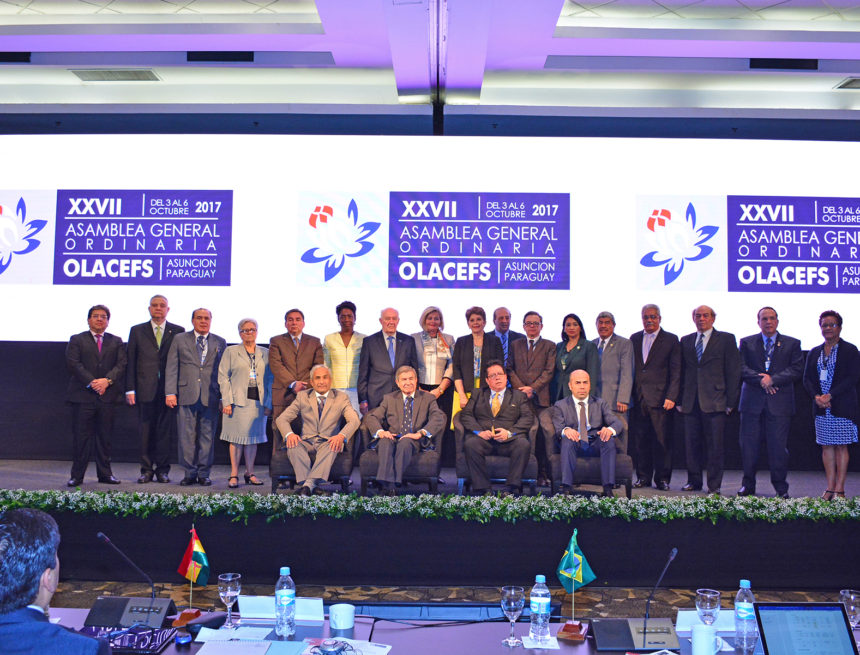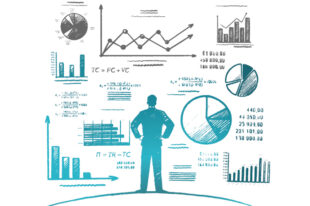XXVII OLACEFS General Assembly


“Each of us has input. Each of us will receive benefits that we can take back to our Supreme Audit Institutions,” remarked Mr. Juan M. Portal, Auditor General (AG) of Mexico and Chairman of the Organization of Latin American and Caribbean Supreme Audit Institutions (OLACEFS), in his address to attendees at the XXVII OLACEFS General Assembly in Asunción, Paraguay.
The official opening ceremony October 3, 2017, jumpstarted the week-long event that included some 150 delegates from Supreme Audit Institutions (SAIs) taking part in presentations, panels and roundtable discussions.
Several associate members and observers also participated, including the Chair of the International Organization of Supreme Audit Institutions (INTOSAI), INTOSAI General Secretariat, INTOSAI Development Initiative (IDI), the World Bank, Organization for Economic Cooperation and Development (OECD), German Society for International Cooperation (GIZ), as well as the Inter-American Development Bank (IADB).
The General Assembly focused on two themes this year—”The Use of Big Data Analysis in the Audit Function” and “Performance Audits in the Evaluation of the Sustainable Development Goals (SDGs)”—with each theme being fully developed using a combination of presentations, panels and roundtable discussions.
“Big data will transform the way we live, think and work, and OLACEFS gives us the opportunity to come together, to address relevant topics and to share ways to improve,” announced Mr. Martín Rubione, Chief of SAI Argentina’s Information Technology (IT) Audit Department and OLACEFS Commission of Information and Communication Technologies (CTIC) representative.
Minister Augusto Nardes, SAI Brazil, agreed, emphasizing that using big data to improve good governance requires collaboration.
“Our dream of working together to protect our continent is coming to fruition through cooperation. Little by little, the work we are doing crosses borders, and OLACEFS is important in developing endeavors for cooperation, friendship and solidarity,” he said.
Mr. James-Christian Blockwood, Managing Director, United States Government Accountability Office (GAO), Strategic Planning and External Liaison (SPEL), recognized the synergies achieved in working together and invited OLACEFS members to participate and to join INTOSAI’s Working Group on Big Data (WGBD), noting that the capacity to accept volume is a key aspect when it comes to harnessing and utilizing big data.
Mr. Wesley Vaz-Silva, SAI Brazil’s Secretary of Information Technologies for External Control, believes all auditors are information analysts. Mr. Vaz-Silva provided attendees with an overview of new, user-friendly technology that empowers auditors through immediate, automated data.
“Technology that is easy to use helps change the mindset of auditors,” mentioned Mr. Vaz-Silva, adding, “How do we engage the entire community in understanding and using big data? Auditors must be involved in this movement! We must experiment! We may fail, but we have to try!”
Little by little, the work we are doing crosses borders, and OLACEFS is important in developing endeavors for cooperation, friendship and solidarity.
Minister Agusto Nardez, SAI BRazil
In a presentation on open government and the challenges to government auditing, Ms. Carolina Cornell, Advisor on Open Government Coordination, Republic of Argentina’s Modernization Ministry, shared the Argentine experience.
Ms. Cornell underscored the importance of creating a formal space for collaboration between government and Civil Service Organizations (CSOs).
“Transparency, participation, accountability. We can contribute to the lives of citizens through these principles,” she said.
Attendees unanimously agreed that distinguishing between data and information is crucial, citing only well-prepared data, precise information is applicable for political decision-making. As the quality of available data is decisive, national statistical institutes shall be strengthened in a sustained manner.
Delegates also discussed performance audits on the SDGs and concluded that SAIs serve as principal agents and guarantors for SDG implementation and monitoring, that SAIs should act as watchdogs on how the 17 goals are put into practice.
Does SDG introduction mean we need to work differently, change how we audit?
“The difference is not the SDGs but how you deal with them. SDGs need a different approach from SAIs. Findings will be very different if SDGs are looked at in the traditional way,” cited Ms. Archana Shirsat, IDI Deputy Director General.
“We need to raise awareness. We need to go beyond the audit report. We need to join efforts, resources and political will!” remarked Mr. Luis Fernando Velásquez-Leal, Executive Director, Corporación Acción Ciudadana Colombia (AC Colombia).
“There are many lessons to be learned, many ways to contribute, many ways to share, to add value and provide benefits to citizens,” he added.
Each of us has input. Each of us will receive benefits that we can take back to our Supreme Audit Institutions.
Mr. Juan M. Portal, OLACEFS Chairman
Dr. Andrés Bernal Morales, SAI Colombia, believes a greater investment is needed from the very beginning to help ensure the public is the beneficiary of all established policies.
Mr. Roberto Salcedo Aquino, Deputy Auditor General of SAI Mexico, which chairs the Working Group on Value and Benefits of SAIs (WGVBS), proclaimed, “This voice is our voice!”
Mr. Aquino furthered that the OLACEFS assembly and similar venues “allow us to bring down to the ground what we want to reach in 2030.”
The 2030 Agenda is an aggressive one, and SAIs play a pivotal role in the agenda’s success. Mr. Julio Bacio-Terracino, OECD, shared his thoughts on how corruption makes SDG achievement difficult and how SAIs and the work they perform play a fundamental role in preventing corruption.
Delegates stressed the importance of sufficient and comprehensive training and capacity building measures concerning SDG audits. OLACEFS intends to organize annual meetings on SDG implementation follow-up within the region paying special attention to the fight against poverty and hunger, the violation of human rights, as well as environmental protection and education.
The highlight of the General Assembly was the adoption of the “Declaration of Asunción on Budget Security and Financial Stability of SAIs,” which was signed by all OLACEFS SAI heads.
Big data will transform the way we live, think and work, and OLACEFS gives us the opportunity to come together, to address relevant topics and to share ways to improve.
Mr. Martín Rubione, CTIC Representative
This declaration provides information on legal foundations of SAI independence and concrete actions and measures that enhance SAI financial independence.
Ms. Dorothy Bradley, Auditor General of Belize, said, “We were going public without going public,” she said, as she described collaborating with several external organizations including OLACEFS while not focusing on announcing the process publicly.
“The lack of a budget and resources means we cannot be innovative, that we will do more of the same,” noted Dr. Jorge Bermudez-Soto, Comptroller General of the Republic of Chile and OLACEFS Executive Secretary.
Monika Gonzalez-Koss, Director of the INTOSAI General Secretariat, pointed to increasing awareness as the means to secure more resources.
“We must continue with our efforts to raise awareness about independence and its importance. SAIs need a clear vision, a clear strategy to request greater independence with greater resources,” she said.
As the XXVII OLACEFS General Assembly drew to a close, it was officially announced that SAI Argentina would host the 2018 regional gathering in Buenos Aires.
Technology that is easy to use helps change the mindset of auditors.
MR. WESLEY VAZ-SILVA, SAI BRAZIL





